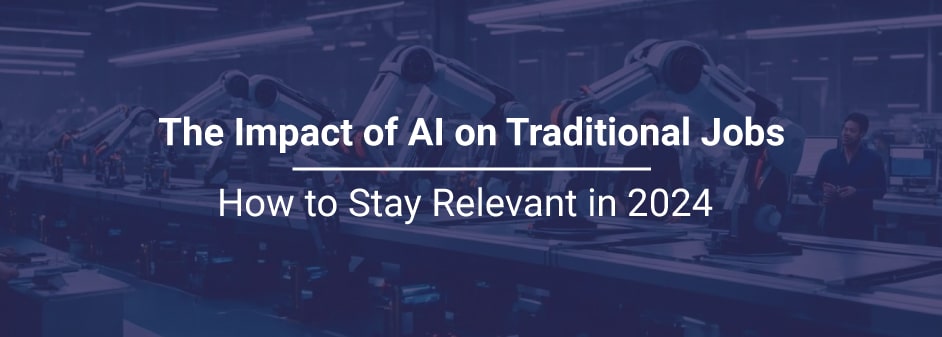2024 Year in Review: Key IT Training Trends and What to Expect in 2025

Introduction
2024 was a remarkable year in the IT training industry, as businesses continued to adapt to the demands of a technology-driven world. This year, the focus on remote and hybrid training environments grew stronger, as did the demand for skills aligned with digital transformation and cybersecurity. As we close out 2024, it’s clear that the trends shaping IT training are not just responses to today’s needs they’re setting the stage for a future-ready workforce. Here’s a look back at the key IT training trends of 2024 and what’s on the horizon for 2025.
Top IT Training Trends of 2024
Rise of Hybrid and Remote Learning
Hybrid and remote learning models became essential in 2024, allowing employees to access training from any location. This approach not only accommodates the needs of remote teams but also provides flexibility for busy professionals who need to balance learning with work. Tech-Act’s flexible learning options, which include virtual, in-person, and hybrid models, have gained traction, proving that flexible, location-independent training is here to stay.
Focus on Digital Transformation Skills
With digital transformation reshaping industries, companies emphasized training employees on relevant digital skills, from automation to data analytics. Tech-Act’s digital transformation training programs have been instrumental in helping companies navigate the complexities of new technologies, empowering employees to implement these solutions confidently. In 2024, digital skills became an essential investment for companies aiming to remain competitive.
Demand for Cybersecurity Training
As cyber threats grew in frequency and sophistication, the demand for cybersecurity training surged in 2024. Companies recognized that building a security-aware workforce is crucial to protecting sensitive information and maintaining customer trust. Tech-Act’s cybersecurity programs address this need by providing employees with a solid understanding of digital security practices, risk mitigation, and regulatory compliance.
Increased Use of AI in Training
Artificial intelligence has revolutionized training by enabling more interactive, responsive learning experiences. From AI-driven learning assistants to smart content recommendations, AI has made training more personalized and adaptive. In 2024, companies leveraged AI-powered tools to assess learning progress, provide targeted resources, and even simulate real-world scenarios for hands-on practice.
Personalized Learning Paths
Personalized learning took center stage in 2024, as employees increasingly sought training that aligns with their specific career goals. Rather than generic courses, employees benefited from tailored learning paths that adapt to their current skill levels and preferred learning styles. Tech-Act’s personalized training solutions allowed learners to focus on the most relevant skills, enhancing both engagement and skill retention.
Looking Ahead: What to Expect in 2025
As we move into 2025, IT training trends will continue evolving to meet the needs of a workforce that values flexibility, personalization, and practical skills. Here’s what’s likely to shape IT training in the coming year:
Growth of Microlearning and Short Courses
Microlearning delivering content in short, focused bursts—is expected to grow even more popular in 2025. As attention spans decrease and time constraints increase, shorter training sessions that deliver targeted knowledge will become indispensable. Companies will likely adopt more modular training, breaking complex topics into bite-sized segments that are easier to absorb and apply.
Expansion of Skill-Based Assessments
Skill-based assessments, such as hands-on projects and simulations, will become a core part of training programs in 2025. These assessments offer real-time feedback, allowing employees to practice new skills and demonstrate competency in practical settings. By focusing on applied knowledge rather than theoretical concepts, these assessments will help companies evaluate the impact of their training investments more accurately.
Greater Emphasis on Soft Skills
While technical skills are crucial, 2025 will see a stronger emphasis on soft skills like communication, teamwork, and adaptability. As more teams work in hybrid or fully remote settings, these skills will be essential for fostering collaboration and cohesion. Training programs will integrate soft skills development to create well-rounded employees who can adapt to the interpersonal demands of a modern workplace.
Advanced Data-Driven Training Insights
In 2025, companies will increasingly leverage data analytics to gain insights into training effectiveness. This includes tracking engagement levels, completion rates, and knowledge retention over time. With advanced metrics, companies will be able to adjust training content and delivery to meet learners’ needs more precisely, ensuring the highest return on their training investments.
Conclusion
Reflecting on the IT training trends of 2024, it’s clear that the industry is moving towards more flexible, personalized, and data-driven approaches. Companies have recognized that investing in skill development is essential to staying competitive in a digital economy. As we look ahead to 2025, trends like microlearning, skill-based assessments, and the integration of soft skills into training programs will continue to shape a workforce that’s resilient, adaptable, and prepared for the future.
Ready to start preparing your team for 2025?
Contact Tech-Act today to learn more about our forward-thinking training solutions, designed to equip your workforce with the skills needed for success in the year ahead and beyond.
FAQs
Why are hybrid and remote learning models so popular in IT training?
Hybrid and remote models provide flexibility, allowing employees to learn from anywhere, which accommodates remote teams and busy schedules. They enable continuous learning without interrupting productivity.
What are digital transformation skills, and why are they important?
Digital transformation skills include areas like automation, data analytics, and cloud computing, which help businesses leverage technology to improve processes and deliver better customer experiences. These skills are essential for companies aiming to remain competitive.
How does AI enhance the training experience?
AI-driven tools in training provide personalized recommendations, simulate real-world scenarios, and offer responsive feedback, making learning more adaptive and tailored to individual needs.
What is microlearning, and why is it trending?
Microlearning delivers training content in short, targeted segments. This approach is trending because it’s easier for employees to fit short sessions into busy schedules, and it helps improve knowledge retention.
How can data-driven insights improve training programs?
Data analytics helps organizations track engagement, performance, and retention metrics, allowing them to refine training programs based on real-time insights, ensuring training is both effective and impactful.
As 2025 approaches, staying ahead of these trends will be key for businesses committed to cultivating a workforce ready for the future. Tech-Act stands ready to guide your organization through this journey, equipping your teams with the skills they need to thrive.
Introduction
2024 was a remarkable year in the IT training industry, as businesses continued to adapt to the demands of a technology-driven world. This year, the focus on remote and hybrid training environments grew stronger, as did the demand for skills aligned with digital transformation and cybersecurity. As we close out 2024, it’s clear that the trends shaping IT training are not just responses to today’s needs they’re setting the stage for a future-ready workforce. Here’s a look back at the key IT training trends of 2024 and what’s on the horizon for 2025.
Top IT Training Trends of 2024
Rise of Hybrid and Remote Learning
Hybrid and remote learning models became essential in 2024, allowing employees to access training from any location. This approach not only accommodates the needs of remote teams but also provides flexibility for busy professionals who need to balance learning with work. Tech-Act’s flexible learning options, which include virtual, in-person, and hybrid models, have gained traction, proving that flexible, location-independent training is here to stay.
Focus on Digital Transformation Skills
With digital transformation reshaping industries, companies emphasized training employees on relevant digital skills, from automation to data analytics. Tech-Act’s digital transformation training programs have been instrumental in helping companies navigate the complexities of new technologies, empowering employees to implement these solutions confidently. In 2024, digital skills became an essential investment for companies aiming to remain competitive.
Demand for Cybersecurity Training
As cyber threats grew in frequency and sophistication, the demand for cybersecurity training surged in 2024. Companies recognized that building a security-aware workforce is crucial to protecting sensitive information and maintaining customer trust. Tech-Act’s cybersecurity programs address this need by providing employees with a solid understanding of digital security practices, risk mitigation, and regulatory compliance.
Increased Use of AI in Training
Artificial intelligence has revolutionized training by enabling more interactive, responsive learning experiences. From AI-driven learning assistants to smart content recommendations, AI has made training more personalized and adaptive. In 2024, companies leveraged AI-powered tools to assess learning progress, provide targeted resources, and even simulate real-world scenarios for hands-on practice.
Personalized Learning Paths
Personalized learning took center stage in 2024, as employees increasingly sought training that aligns with their specific career goals. Rather than generic courses, employees benefited from tailored learning paths that adapt to their current skill levels and preferred learning styles. Tech-Act’s personalized training solutions allowed learners to focus on the most relevant skills, enhancing both engagement and skill retention.
Looking Ahead: What to Expect in 2025
As we move into 2025, IT training trends will continue evolving to meet the needs of a workforce that values flexibility, personalization, and practical skills. Here’s what’s likely to shape IT training in the coming year:
Growth of Microlearning and Short Courses
Microlearning delivering content in short, focused bursts—is expected to grow even more popular in 2025. As attention spans decrease and time constraints increase, shorter training sessions that deliver targeted knowledge will become indispensable. Companies will likely adopt more modular training, breaking complex topics into bite-sized segments that are easier to absorb and apply.
Expansion of Skill-Based Assessments
Skill-based assessments, such as hands-on projects and simulations, will become a core part of training programs in 2025. These assessments offer real-time feedback, allowing employees to practice new skills and demonstrate competency in practical settings. By focusing on applied knowledge rather than theoretical concepts, these assessments will help companies evaluate the impact of their training investments more accurately.
Greater Emphasis on Soft Skills
While technical skills are crucial, 2025 will see a stronger emphasis on soft skills like communication, teamwork, and adaptability. As more teams work in hybrid or fully remote settings, these skills will be essential for fostering collaboration and cohesion. Training programs will integrate soft skills development to create well-rounded employees who can adapt to the interpersonal demands of a modern workplace.
Advanced Data-Driven Training Insights
In 2025, companies will increasingly leverage data analytics to gain insights into training effectiveness. This includes tracking engagement levels, completion rates, and knowledge retention over time. With advanced metrics, companies will be able to adjust training content and delivery to meet learners’ needs more precisely, ensuring the highest return on their training investments.
Conclusion
Reflecting on the IT training trends of 2024, it’s clear that the industry is moving towards more flexible, personalized, and data-driven approaches. Companies have recognized that investing in skill development is essential to staying competitive in a digital economy. As we look ahead to 2025, trends like microlearning, skill-based assessments, and the integration of soft skills into training programs will continue to shape a workforce that’s resilient, adaptable, and prepared for the future.
Ready to start preparing your team for 2025?
Contact Tech-Act today to learn more about our forward-thinking training solutions, designed to equip your workforce with the skills needed for success in the year ahead and beyond.
FAQs
Why are hybrid and remote learning models so popular in IT training?
Hybrid and remote models provide flexibility, allowing employees to learn from anywhere, which accommodates remote teams and busy schedules. They enable continuous learning without interrupting productivity.
What are digital transformation skills, and why are they important?
Digital transformation skills include areas like automation, data analytics, and cloud computing, which help businesses leverage technology to improve processes and deliver better customer experiences. These skills are essential for companies aiming to remain competitive.
How does AI enhance the training experience?
AI-driven tools in training provide personalized recommendations, simulate real-world scenarios, and offer responsive feedback, making learning more adaptive and tailored to individual needs.
What is microlearning, and why is it trending?
Microlearning delivers training content in short, targeted segments. This approach is trending because it’s easier for employees to fit short sessions into busy schedules, and it helps improve knowledge retention.
How can data-driven insights improve training programs?
Data analytics helps organizations track engagement, performance, and retention metrics, allowing them to refine training programs based on real-time insights, ensuring training is both effective and impactful.
As 2025 approaches, staying ahead of these trends will be key for businesses committed to cultivating a workforce ready for the future. Tech-Act stands ready to guide your organization through this journey, equipping your teams with the skills they need to thrive.




























